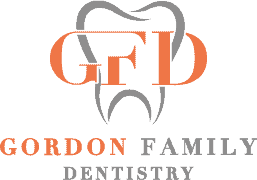Teeth grinding, or stress, anxiety, sleep disorders, misaligned teeth, medications, substances, lifestyle habits, and underlying medical conditions primarily cause bruxism. The pressure from stress and anxiety can lead to clenching. Sleep disorders may trigger involuntary grinding.
Misaligned teeth cause pressure and strain. Medications, stimulants, and lifestyle choices can exacerbate grinding. Conditions like TMJ disorder impact jaw health. Addressing these factors is crucial for effective management.
What Causes Teeth Grinding?
Teeth grinding, also known as bruxism, can be caused by a combination of factors. The most common cause is stress and anxiety. Other causes include sleep problems, medications, other substances, personality types, and other emotions.
Here is a complete breakdown.
Stress and Anxiety
Stress and anxiety are common factors that contribute to the occurrence of teeth grinding, also known as bruxism. When individuals experience heightened levels of stress or anxiety, they may unconsciously clench or grind their teeth, leading to various oral health issues. This repetitive clenching and grinding can put excessive pressure on the teeth, jaws, and surrounding muscles, resulting in discomfort and pain.
Symptoms of teeth grinding due to stress and anxiety may include headaches, jaw pain, tooth sensitivity, and disrupted sleep. If left untreated, bruxism can lead to more severe dental problems such as worn-down teeth, fractures, or even tooth loss. It is essential to address the underlying causes of stress and anxiety to manage and alleviate teeth grinding effectively.
Treatment for teeth grinding often involves stress-reducing techniques such as relaxation exercises, meditation, or therapy to help individuals cope with anxiety better. Additionally, wearing a custom mouthguard at night can protect the teeth from damage caused by grinding. Seeking professional dental care is crucial to prevent further complications associated with this common disorder.
Sleep Disorders
Teeth grinding, or bruxism can also be associated with sleep disorders, highlighting the intricate relationship between oral health and nocturnal habits. Sleep disorders can manifest as a variety of conditions that affect the quality and pattern of sleep, leading to behaviours like teeth grinding during the night. Individuals with sleep disorders may experience physical and dental implications, such as increased muscle activity in the jaw that causes grinding.
Clenching and grinding teeth during sleep is often involuntary and can result in dental issues if left untreated. Medications or certain medical conditions related to sleep disturbances can also contribute to teeth grinding at night. Understanding the connection between sleep disorders and bruxism is crucial in addressing the root cause of the issue and providing appropriate treatment to improve both sleep quality and oral health.
If teeth grinding is suspected to be related to a sleep disorder, it is essential to seek professional dental advice.
Misaligned Teeth
Misaligned teeth, also known as malocclusion, can contribute to the development of teeth grinding, or bruxism, by affecting the natural alignment and function of the jaw. When the teeth do not align correctly, it can lead to an uneven bite, causing excessive pressure on certain teeth during chewing and grinding motions. This pressure can result in damage to the teeth, causing wear and potential fractures over time. Moreover, misaligned teeth can strain the jaw joint, leading to a temporomandibular joint (TMJ) condition, often associated with bruxism.
A dentist can assess misaligned teeth and recommend treatment options to alleviate the effects of bruxism. One common approach is using a splint, a nightguard, to protect the teeth from grinding during sleep. In more severe cases, orthodontic treatment may be necessary to correct the misalignment of the teeth and improve the bite. Seeking professional dental care is crucial in addressing misaligned teeth to prevent further damage and alleviate the symptoms of bruxism.
Medications and Substances
Certain medications and substances have been linked to the onset or exacerbation of teeth grinding, a condition known as bruxism. Certain antidepressants, for example, can have side effects that include teeth grinding. Substances like caffeine and alcohol have also been identified as potential risk factors for bruxism. These drugs and substances can interfere with the normal functioning of the central nervous system, leading to involuntary teeth clenching or grinding.
Bruxism caused by medications or substances can be a serious issue, as it can contribute to dental problems, jaw pain, and disrupted sleep. If you suspect that your teeth grinding is linked to medication or substance use, it is important to consult with a healthcare provider. Treatment for bruxism related to medications or substances may involve adjusting the dosage of the medication, switching to an alternative medication, or reducing consumption of the substance.
Addressing the underlying causes of bruxism is crucial for managing the condition effectively and preventing further dental issues.
Lifestyle Factors
Factors related to one’s daily habits and routines play a significant role in developing and exacerbating teeth grinding, also known as bruxism. Lifestyle factors such as stress and anxiety are common triggers for teeth grinding. Individuals experiencing high levels of stress or anxiety may unconsciously clench their jaw or grind their teeth, especially during sleep. Additionally, sleep disorders can contribute to bruxism, as disruptions in sleep patterns can impact the body’s ability to relax the muscles properly.
Consumption of stimulants like caffeine, alcohol, or smoking has been linked to an increase in teeth grinding. These substances can worsen muscle tension, making individuals more prone to clenching their jaw. Certain medications may also have side effects that lead to bruxism. Moreover, jaw misalignment is a physical factor that can contribute to teeth grinding, as it puts additional strain on the muscles involved in chewing.
Relaxation techniques such as meditation, deep breathing exercises, or muscle relaxation exercises can be beneficial in combating the effects of lifestyle factors on bruxism. These practices help reduce stress, promote muscle relaxation, and improve overall well-being, potentially alleviating teeth-grinding symptoms.
Underlying Medical Conditions
Medical conditions can also contribute to the occurrence and persistence of teeth grinding, known as bruxism. Conditions such as temporomandibular joint disorder (TMJ) can contribute to bruxism. TMJ affects the jaw joint and muscles that control jaw movement, leading to teeth grinding as a common symptom. Additionally, underlying medical conditions like sleep apnea and gastroesophageal reflux disease (GERD) can impact oral health and contribute to bruxism.
Awareness of these medical factors and their potential effects on oral health is crucial. Teeth grinding due to medical conditions can lead to severe dental issues such as worn enamel, tooth sensitivity, and even fractures. Patients experiencing headaches, jaw pain, or difficulty opening and closing their mouth should consult a healthcare provider to identify any underlying medical conditions that may be causing bruxism. Preventive measures, such as stress management techniques and the use of a mouthguard during sleep, can help alleviate the effects of teeth grinding caused by medical conditions.
How Do You Treat Teeth Grinding?
Treatments for teeth grinding address two main approaches
- Protecting your teeth
- Managing the underlying cause.
Protecting Your Teeth
A mouthguard is a custom-made appliance worn at night to cushion your teeth and prevent them from grinding together.
Addressing the Underlying Cause
- Behavior changes: This could involve identifying and reducing triggers like stress, caffeine, or alcohol intake.
- Muscle relaxers: These medications can help loosen jaw muscles and ease nighttime grinding.
- Botox injections: In severe cases, injections can temporarily paralyze the jaw muscles, preventing grinding.
- Stress management and relaxation training: Techniques like meditation or therapy can help manage stress and anxiety, which are common triggers for teeth grinding.
Key Takeaways
Teeth grinding can be attributed to a variety of factors, such as stress, sleep disorders, misaligned teeth, medications, lifestyle choices, and underlying medical conditions.
It is a serious issue that can lead to detrimental consequences for one’s oral health. Therefore, it is crucial to address the root causes of teeth grinding in order to prevent further damage and maintain overall well-being.
Contact Gordon Family Dentistry at Gordon 2072 to schedule a comprehensive dental evaluation and discuss personalised treatment options. Taking action now can help prevent further damage to your teeth and overall oral health. Remember, your well-being is worth prioritising.

